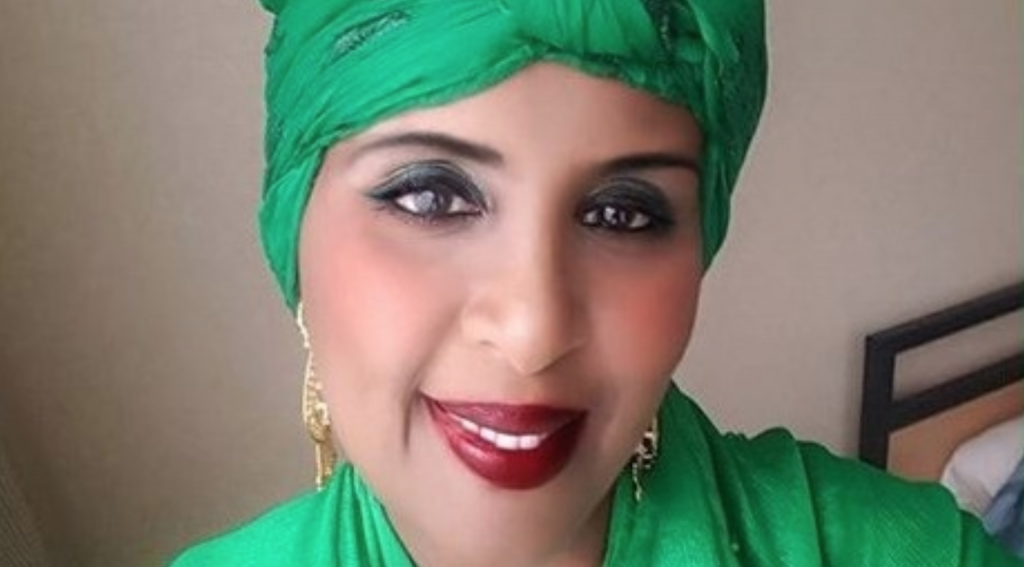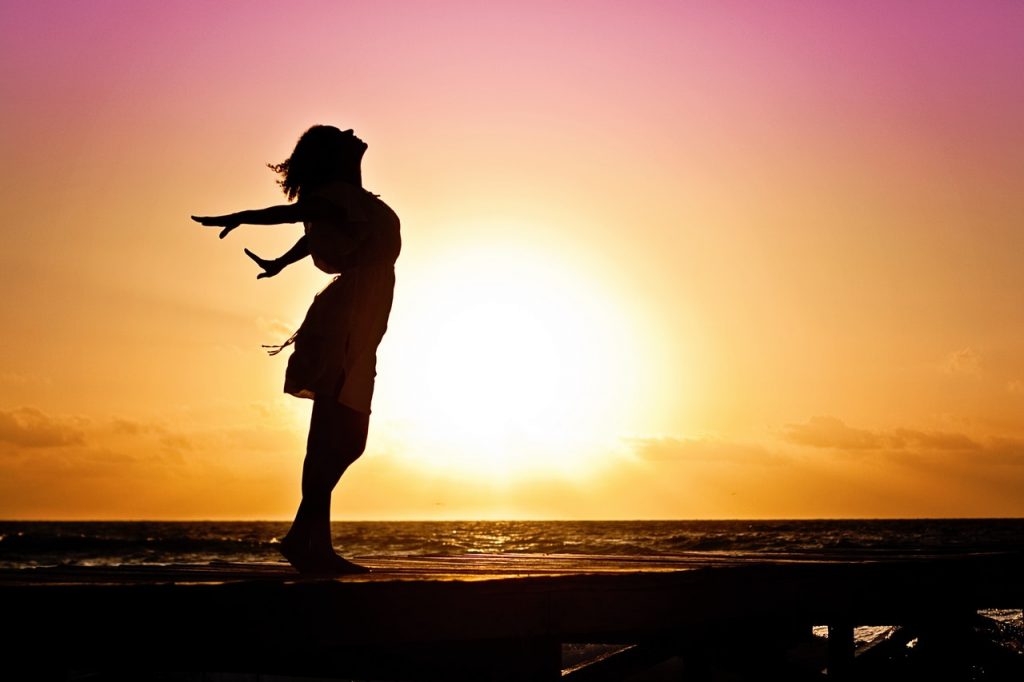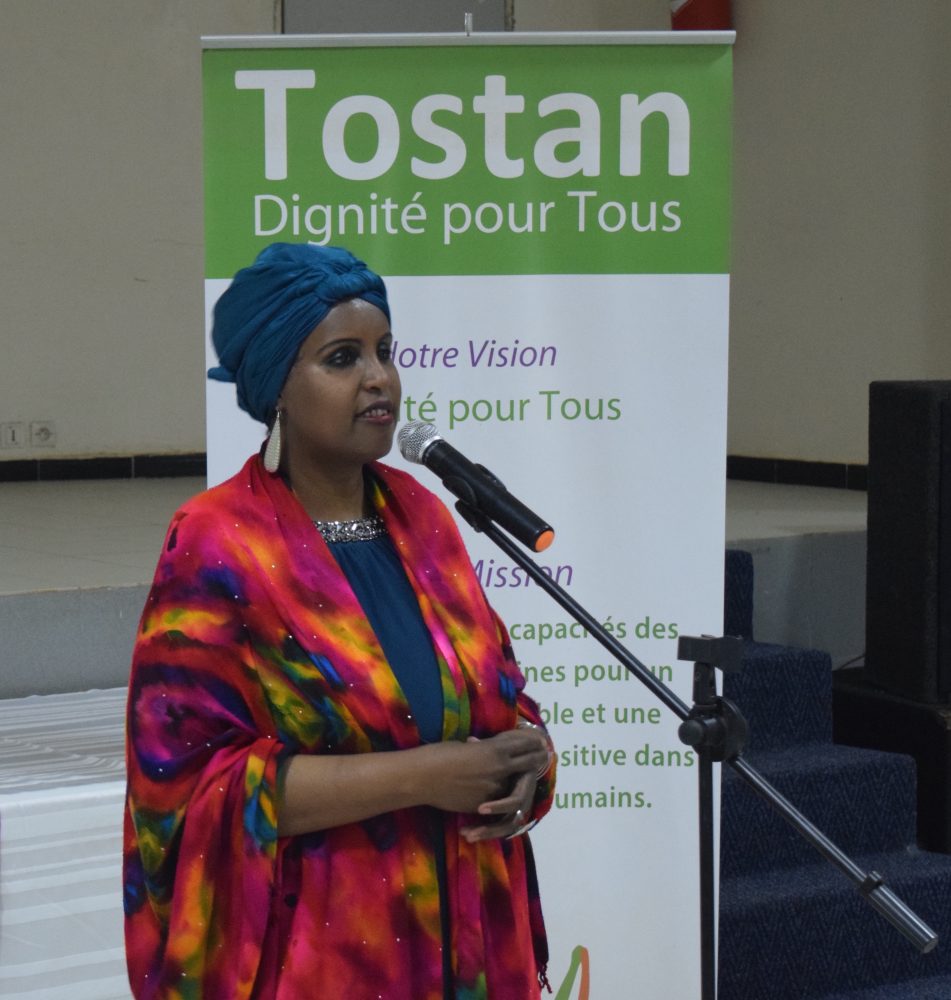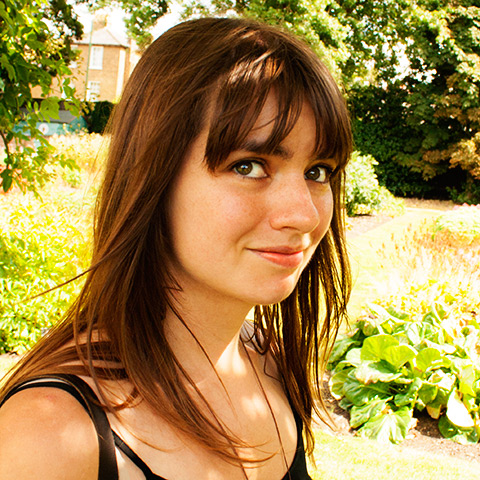Hibo Wardere is one of Britain’s most prominent campaigners against female genital mutilation (FGM). FGM involves the partial or complete removal of the external female genitalia for non-medical reasons. UNICEF estimates that 200 million women and girls live with FGM, which can cause devastating health problems.
“I am a survivor of FGM but I never dared to talk about it,” Hibo Wardere tells me. “You know it’s too shameful.”
Brilliant, hilarious, and outspoken, it’s hard to imagine Hibo holding back about anything. Born in Somalia, she came to Britain in 1989 as a refugee from the civil war. Since then, she’s become widely recognised for her work as a speaker, author and anti-FGM activist.
But Hibo didn’t start out as an activist. It was a chance encounter during her training as a teaching assistant, she tells me, that pushed her to get involved. The headteacher asked her to take part in a meeting with parents whom the school suspected of wanting to perform FGM on their daughter.
Hibo was shocked to discover that the school didn’t include FGM in its child protection policy. At the same time, as part of her training, she was asked to write an essay about something she was passionate about.
“I decided I was going to write about FGM,” she tells me, “and that was the first time I actually ever sat down and looked at myself. It was the hardest thing to do. Because it meant I had to re-live everything that I’d tried so hard not to think about.”
Now Hibo spends her time raising awareness about FGM by speaking in schools and delivering training to doctors and the police. She tells me what she’s learned along the way.
What did you want to do or be when you were a child?
Growing up, we had two rules, one for the girls and one for the boys. For a girl, it was ‘you’re going to grow up, you’re going to be a beautiful woman and you’re going to be a mother’. For a boy it was ‘you’re going to be a king, take over the whole world’. So for me, I wasn’t given a chance.
What would I have wanted to be looking back? I think I would have been something like a doctor, I was very much interested in medical things. It just seemed like something that a woman wasn’t allowed to do. And I thought, ‘hey, you can try.’ I always had that mind, even when I was little. Even when I was told ‘women don’t do this.’
 Image Credit: Hibo Wardere
Image Credit: Hibo Wardere
Nature or nurture?
I think nature and nurture co-habit. For me, the way you are nurtured is very important but so is nature. They are both intertwined. But I think nurture is a little bit more important. The environment you’re living in is very important. If your environment is restrictive and literally cutting you off, that’s a huge thing.
What was the most important thing your parents taught you?
One thing that I’ve learned from my parents is to be respectful of others, especially the elderly. You are constantly reminded of how the elderly are important in your life and how you should be grateful. But also to have respect for animals. That was a big one because we had five cows and goats and creatures like that. So we were always told to be nice. If you want to have nice milk, be nice, be kind!
What’s your best memory?
My best memory in Somalia is waking up every morning with my mother, going to the kitchen, and cooking breakfast with her. Just watching her do all the things she did every morning and listening to the sounds around you, animals, goats, and cows. There was something about 5:00 in the morning that made me feel absolutely free.
What does freedom mean to you?
Oh my goodness, freedom. What does it not mean to me? Freedom is my life. Because, growing up, I saw no freedom for myself. I saw life decided for me. I saw myself as nothing, as a commodity.
I craved the right to make a decision, I craved the right to have a story. I craved all these things and, for me, coming to the UK granted me my freedom. The 1st of December 1989 was when I gained my freedom. For me, the freedom I have today to speak, to make up my mind, to make decisions, to do whatever I want, is the most precious thing.
Has there every been a time you experienced some kind of discrimination?
Oh yes, just quite recently actually. I went to Poland and, the day I was leaving, there was an incident at the airport. They have a two-way metal detector, there’s the first one you enter and then there’s one in the inside. The first one beeped and as soon as it beeped there was an old couple in front me, who started saying ‘’terrorist, terrorist, terrorist,’
The security guards came out and I knew straight away there was something wrong, the way they were looking at me. When I went through the metal detector, it didn’t beep at all. And there was still a lady waiting for me. She said ‘come this way’ and she searched me in the most intimate way in front of everybody else.
I felt so violated in so many ways. I thought ‘what just happened, why is all this happening?’ And everybody stopped and was looking as if I was a terrorist or something. They took a swab out of my hand as well, they took my shoes again, and they sat down and finally they gave me my stuff and said ‘go.’
I was labelled a terrorist because of what I was wearing and singled out. It turned out that the machine beeped because the man behind me had shoes with buckles on, so it wasn’t even me.
What human right do you value the most?
Freedom. To have freedom is the most important part of any human. When you have that precious freedom, you can make decisions about your life, about what you want to do. For me, there is nothing above that. I have freedom and everything else follows.
Video Credit: Lorraine / ITV
What makes you frustrated?
What makes me frustrated is when in the UK women are told ‘oh you are free to do this, you have rights to do this’ but there is this invisible block. I call this oppression of women but in a civilised society. This is civilised oppression. In the Western world, you are told you can do whatever you want, but there are always invisible blocks.
And for men who just stand there and let this happen, they are part of the problem. The solution would be if they joined, if they protected the opposite sex. Most of them do, but many of them don’t.
What do you worry about most for next generation in terms of human rights?
What I mostly worry about is that fundamental rights are being scrubbed away. As humans, we are attacking each other, we are taking away the rights that we have. And it’s really becoming women’s rights that are being tampered with. 200 million women and girls have been mutilated and yet those countries still blatantly protect FGM. We need to be fighting that.
What does ambition mean to you?
The ambition I have is seeing, in my lifetime, female genital mutilation eradicated.
What surprises people about you?
Many times I have been told that I’m a comedian. I am not a comedian! But every time I give a speech, I have people responding by laughing or crying. So I’ve been told I’m a comedian, because I tell lots of jokes when I’m saying serious stuff. For me, it’s making people, not be ‘arrgh’ all the time, giving them a little bit of fun.

Image Credit: pexels.com.
Are you a believer, atheist, or agnostic?
I am a believer. I believe in my religion. I’m a Muslim feminist, that’s what I would say. Am I a very practicing Muslim person? I wouldn’t say that. But I would say I’m just a normal Muslim woman. I do trust in Allah, I do believe in my Allah and my Prophet.
What does dignity in dying mean to you?
Oh my goodness, I have to talk about my mother if I’m talking about dignity in dying. Because my mother was struck down with a stroke and for four years me and my sister looked after her. For me, it was all about making sure when death came, she died surrounded by love.
How are you trying to change the world?
I’m not trying to change the world! Maybe.
I travel a lot to other countries to raise awareness. I went to Canada last year and I had the privilege to give one hour’s talk in the parliament. The parliament is mostly men, and I said, ‘just close your eyes and listen to what I say.’ They did and then I said, ‘imagine if your penises and balls were chopped off, how would you feel about that?’
I try to make them realise they shouldn’t say it’s a women’s issue. I have a problem with that. It’s not a women’s issue, it’s a human issue. It’s an issue that should touch you because, when another human is unhappy, it doesn’t matter if it’s a man, woman, girl, or boy. You need to get involved, you need to make it your business. So don’t ignore it because it’s not your colour, it’s not your race, it’s not your religion, it’s not your part of the world. That should be surpassed by humanity.
And that is what I’m trying to tell others with power. Don’t look at them as the brown, blue, black children. Look at them as innocent children who belong to you and me. Children are universal and we need to protect them. So for me, changing the world is about seeing a world where there is fairness for all.
What is the meaning of life?
Living with laughter, love, care, and compassion. All of those things mean living a life with meaning. Without those we are nothing.







